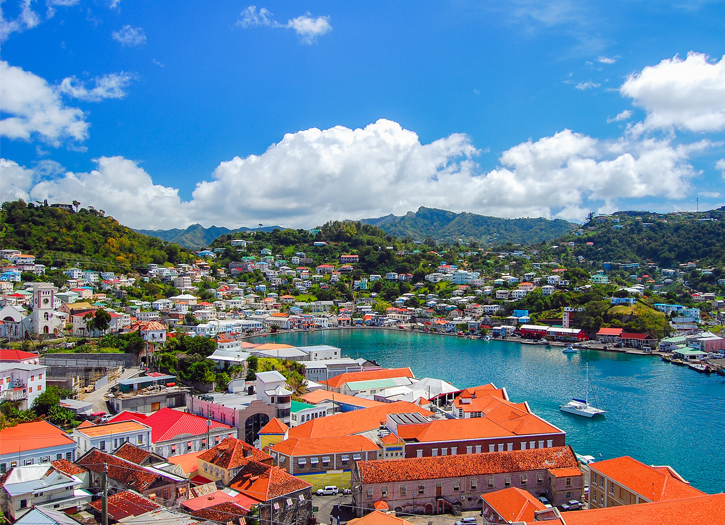The COVID-19 pandemic in Grenada is part of the ongoing global viral pandemic of coronavirus disease 2019 (COVID-19), which was confirmed to have reached Grenada on March 22, 2020. Despite lockdowns and social distancing protocols, it appeared to have reached the level of community spread within one month. However, cases continued to decline through May, and by June 18, the Ministry of Health declared zero active cases—indicating Grenada’s efforts were successful in ridding the country of the virus.
March 22—The country’s first case (“Patient Zero”) was announced, a 50-year-old female patient who returned from the United Kingdom on March 16 and subsequently became sick on March 17, and was officially diagnosed on March 21. At 11:59pm, the airport was shut-down, indefinitely. March 25—Six more cases announced (5 female, 1 male, ages 50–80), all from Patient Zero’s household. The government institutes policy of restricted movement and nightly curfew.As on 16 November, total number of cases in Grenada was 33, with 4 active case and 29 cures.
The government of Prime minister Keith Mitchell instituted a series of increasingly tightening social distancing and quarantine policies that eventually led to a full country lockdown. Prior to the island’s first case (but in anticipation of it occurring), schools and public gatherings were banned and social distancing encouraged on March 14. It was known that at least three persons who later tested positive to Covid-19 elsewhere had traveled through Grenada. Following the first confirmed case on March 22, the airport was closed to commercial traffic and remained closed indefinitely.
On March 25, emergency powers were implemented to restrict movement and nightly curfews. Businesses unable to enforce social distancing were ordered to be closed (e.g., many restaurants and bars became take-out only). These were quickly revised into a full, 24-hour lockdown on March 30, where all citizens were to remain in their homes and all business were closed except essential services described in the act. Specific grocery days were permitted under control of the RGPF, and various changes were experimented with how to effectively handle shopping days (e.g., surname days, times for senior citizens, etc.). The first 24-hour period was to last one week, but following continued exposure of new cases, it was expanded for two additional weeks. On April 18, Emergency Powers were officially extended an additional six months, solely as a precaution should new cases arise (rather than have them expire every few weeks).
With no new cases in the first week of May, Prime Minister Keith Mitchell announced a relaxation of the 24-hour curfew rules, with pre-approved businesses (e.g., grocery stores, banks, etc.) allowed to open every day again, beginning May 11, albeit with continued maintenance of a curfew from 7pm to 5pm. Among other things, construction projects and landscaping could also restart, as could travel between the sister islands, although international borders would remain closed until early June. Nonetheless, the ban on public buses remained in effect, limiting access to those who owned private vehicles, and restaurants remained take-out only.
These easements continued into the week of May 25, with the reopening of retail stores and beautification shops (e.g., hair salons and barbers), as well as public ferry service between Grenada and Carriacou. No date was given for opening the airport, but Minister Steele ensured the public that a two-week notice would precipitate the airport opening and that it would not happen until at least a “three month supply” of rapid tests had been acquired on island (see Economic Effects below). Similarly, public buses were not yet allowed to recommence service, and negotiations with the bus association were frayed by government’s refusal to allow a $0.50 price increase in return for the spatially-distanced, reduced passenger loads required (bus transport restarted on June 1 despite lack of agreement).
As cases continued to decline throughout June, Emergency Powers were continued, but with incremental loosening. On June 16, the daily curfew was loosened from 5am to 9pm (previously from 6am to 7pm) and in-dining restaurants were allowed, so long as they were approved by the Ministry of Health beforehand. On June 28, the curfew was again relaxed to 5am-11pm.







Add Comment